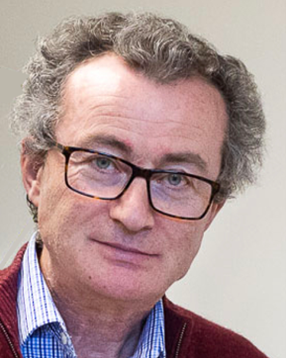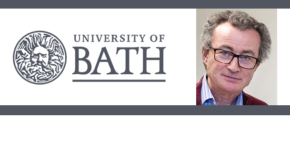 Why is there such a large variety of attitudes to even well-evidenced science?
Why is there such a large variety of attitudes to even well-evidenced science?
Laurence Hurst, professor of evolutionary genetics at the University of Bath, explores the differences between those who trust in science and those who do not.
Since 1997 Laurence Hurst has been the Professor of Evolutionary Genetics at The University of Bath. Prior to this he was a Royal Society Research Fellow at Cambridge University (1994-1997) and a Junior Research Fellow at Oxford (1991-1993). Between his undergraduate degree at Cambridge University and his doctorate at Oxford University, he we was the Henry Fellow at Harvard University. He was the recipient of 2003 Scientific Medal of the Zoological Society of London, the 2010 Genetics Society Medal, the 2015 VC Research Medal and the 2024 Humboldt Prize. In 2010 he was the inaugural winner of the Excellence in Doctoral Supervision Prize. In 2004 he was elected a member of EMBO. In 2015 he was elected to the Fellowship of the Academy of Medical Sciences and to the Fellowship of the Royal Society. He is the founding director of the Genetics and Evolution Teaching Project that researches the best way to teach evolution in schools. He is on the Advisory board of the Public Library of Science, Biology and sits on numerous editorial boards. He is a past President of the Genetics Society.
Variety of Attitudes to Science
During the pandemic we found that a third of UK people reported increased trust in science while 7% said their trust had gone down. Why such a variety of responses?
Early research into attitudes to science assumed that people who get science also know more science. This deficit model informed much science communication: just tell people the facts. This appears not to work. Teach people facts and attitudes tend not to shift.
Why not? Research now focuses less on what people know and more on trust. Indeed, those reporting increased trust during the pandemic tended to be trusting before and those reporting decreased trust were untrusting before-hand.
Research over the last 5 years has revealed some common differences between people who report not accepting consensus science and those who do. Repeated studies find that the non-trusters believe themselves to be more scientifically expert than objectively they are. They commonly assume that many more share their viewpoint than actually do. And when questioning the science, they also tend to impugn the messenger not the message.
These results in turn have stimulated different strategies to aid dialog.
First, the messenger needs to establish trustworthy credentials: being knowledgeable and relatable helps.
A second is to clarify what the consensus scientific position is, or, if there is no consensus, to clarify what is known, what is unknown and what is being done to find out.
A third is to anticipate alternative takes. Such pre-bunking is more effective than debunking as misinformation once released is hard to contain.
A fourth strategy is inoculation, training people to recognize misleading argumentation. For example, warning people about dialog in which the messenger, rather than the message, is questioned, equips people to be better filters.

